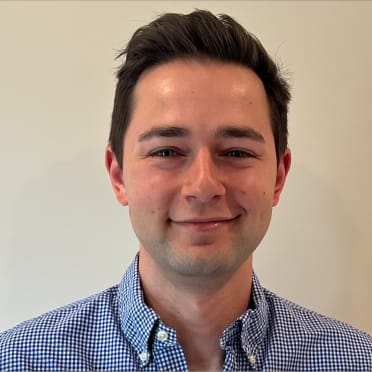'Take the Field' helping more women find work in baseball
NASHVILLE, Tenn. -- When Liz Benn first helped establish the Take the Field program in 2018, there weren’t many people who looked like her in baseball.
Working for the Office of the Commissioner of Baseball, she was the engine behind a program that aims to increase women’s participation in on-field positions, including coaching, front-office roles and umpiring. At the time, only one woman had ever held a coaching position -- a part-time one, at that -- and no women had served as a general manager.
Five years later, the impact of this program -- held at the Winter Meetings -- is apparent. Benn said any new women hired by teams would qualify Take the Field as a success, but the program has blown that goal out of the water. Take the Field has helped usher more than 40 women into MLB positions, bringing a diversity in experience with the next generation of baseball leaders.
“The biggest part of why women were not so prevalent in these roles in baseball is not because of a lack of talent or qualifications,” Benn said, “but instead it was just a lack of awareness both from the women’s perspectives, not knowing that these jobs existed in baseball, but also the clubs not knowing that these candidates existed. It’s great that the program has gotten so much attention over the years because that just means that both sides are opening up even more.”
Take the Field has grown exponentially since the first iteration in Las Vegas. The inaugural event received just 66 applications, whereas the 2023 edition had 518 applications, which has allowed them to more than double their attendance from 46 to 101. Additionally, all 30 Major League teams sent representatives, which is another illustration of the league’s push to add diversity to its ranks.
At the two-day event, participants who are largely in college and recently out of college heard from a panel that included Benn -- who now works as the Mets’ director of Major League operations -- Tigers assistant general manager Sam Menzin, Athletics assistant general manager Billy Owens and Phillies pitching coach Caleb Cotham. The program later broke into smaller groups to share advice, look over résumés, conduct mock interviews and more.
Events like Take the Field help grow the game, since they bring more of the brightest young minds in sports to baseball. With men representing almost all the decision-making positions for decades, this program is aspiring to effectively double the talent pool from which baseball front offices can pull.
“There are so many people who are eager to get into baseball, and they just don't know how,” said Menzin, who has attended all six Take the Field events. “This is a great way for them to get their foot in the door, meet people, network. I keep in touch with people from Take the Field from years past. They'll email every six months, every 12 months, to keep in touch. I think it's getting those new voices in. We talked about it in the event: there's an importance of diversity, certainly, of people, but also of thought. Getting those voices in the game is super important.”
Take the Field has not only brought more women into baseball clubs, it’s also brought women back to the program to help others climb the professional ladder. After attending the first two years of the program, Julia Hernandez now runs the event as MLB’s coordinator of on-field operations and is one of more than 20 alumnae who have returned to speak at the event.
That’s apparent when looking around the tables in the hotel ballroom where most of the team representatives at each table are women. That was not possible in 2018 when it was largely men speaking, a shift that reflects the changing makeup of MLB front offices and the impact that this nascent program has already made.
Last year, the keynote speaker was Kim Ng, who in 2020 became the first female general manager in league history. And it may not be long before Take the Field can roll out a panel of even more trailblazing women breaking ground at new positions.
“I would love to see a year where Take the Field can have all women club employees talking to all women participants,” Hernandez said. “I think that that is not super far off in the future. But I think it would be an incredibly empowering thing to have all women talking to all women. Being able to see yourself in the places that you want to be and the jobs that you want to have, in the seats at the table. Having all of those things kind of come together at one event, that’s a dream of mine, and I don’t think we’re too far from it.”
